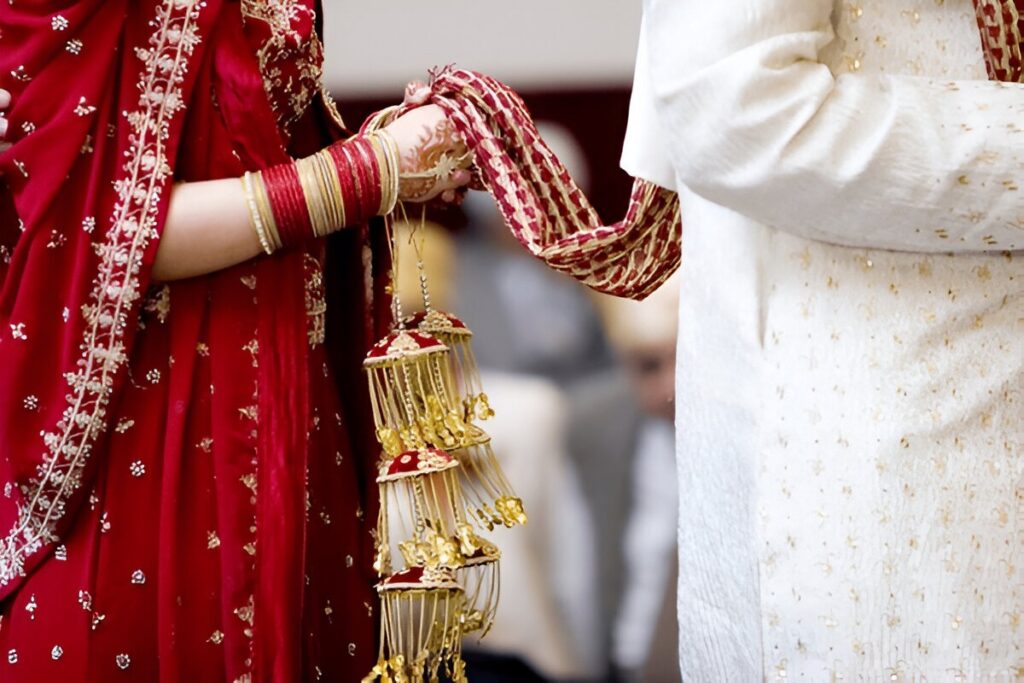Weddings are universal, but how we celebrate them varies wildly across cultures. From dancing camels in India to blackening the bride in Scotland, these deeply rooted rituals offer a glimpse into the soul of a society. In this article, we explore the Top 5 Cultures with the Most Unique Wedding Traditions, showcasing how love is celebrated in ways that are meaningful, emotional, and unforgettable.
Why Unique Wedding Traditions Matter
Every wedding tradition tells a story. These customs aren’t just symbolic—they’re emotional blueprints for how a society views love, union, and commitment. Learning about these practices not only deepens our cultural awareness but also allows us to appreciate the beauty of human diversity.
Whether you’re planning a destination wedding or simply curious, these traditions will give you a fresh perspective on what it means to say “I do.”
1. India – Multi-Day Rituals, Henna, and Baraat
India is home to one of the most elaborate wedding ceremonies in the world. Rich in symbolism and color, Indian weddings typically last three to five days and involve a blend of spiritual, familial, and celebratory events.
Key Traditions:
| Ritual | Description |
|---|---|
| Mehndi (Henna) | The bride’s hands and feet are decorated with intricate henna designs. A popular belief is that the darker the henna, the deeper the love between the couple. |
| Baraat | The groom arrives on a horse (sometimes even on an elephant or camel!) in a dancing parade accompanied by drums and music. |
| Saptapadi | The bride and groom take seven steps around a sacred fire, each representing a vow of their union. |
Real-Life Insight:
As someone who attended a Punjabi wedding in Delhi, I witnessed firsthand how emotionally charged the vidai (bride’s farewell) moment can be. The mix of joy, nostalgia, and bittersweet tears perfectly reflects the cultural importance of family and transition.
Japan – Shinto Purity and Minimalist Elegance
Japanese weddings blend traditional Shinto customs with modern-day aesthetics. Known for their elegance and spiritual depth, these ceremonies prioritize purity, balance, and symbolism over extravagance.
Key Traditions:
| Ritual | Description |
|---|---|
| San-san-kudo | The couple performs a ritual where they take three sips of sake from three cups—symbolizing unity and the sacred bond of marriage. |
| Shinto Blessing | The priest purifies the couple through prayers and offerings to the kami (gods/spirits). |
| Kimono and Headwear | Brides often wear a white shiromuku kimono, symbolizing a clean slate, and a white tsunokakushi headpiece meant to hide “jealousy” and ego. |
Expert Note:
Many couples now choose hybrid ceremonies—starting with Shinto rites and ending with Western-style receptions. This fusion reflects Japan’s modern cultural identity while honoring its roots.
3. Scotland – The Blackening of the Bride
In the Scottish Highlands, a wedding isn’t just about celebration—it’s about testing resilience. One of the most unusual yet entertaining pre-wedding rituals is the “Blackening of the Bride.”
Key Traditions:
| Ritual | Description |
|---|---|
| Blackening | Friends and family cover the bride (or both partners) in a mix of eggs, molasses, feathers, and soot. The messy couple is then paraded through the village. |
| Handfasting | An ancient Celtic tradition where the couple’s hands are tied together with cords to symbolize union. |
| Bagpipe Procession | A traditional bagpipe-led march signifies the groom’s arrival. |
Cultural Insight:
Though it may look like harmless fun, this tradition originated as a metaphor—if the couple can endure public embarrassment together, they can endure anything. It’s messy, loud, and undeniably heartfelt.
4. Nigeria – Colorful Celebrations and Bride Price Negotiation
With over 250 ethnic groups, Nigerian weddings are a dazzling blend of traditions. The Yoruba, Igbo, and Hausa ceremonies differ, but they all share a commitment to community, color, and ritual respect.
Key Traditions:
| Ritual | Description |
|---|---|
| Bride Price (Dowry) Ceremony | A formal negotiation between the groom’s and bride’s families. It’s both symbolic and practical, showing respect and seriousness. |
| Aso Ebi | Guests wear matching outfits to show unity and support for the couple. It turns the whole wedding into a colorful spectacle. |
| Traditional Dance and Music | From the talking drums to highlife music, Nigerian weddings are never quiet affairs. |
Personal Perspective:
One of my Nigerian friends once said, “In Nigeria, the wedding is not just for the couple—it’s for the village.” This communal celebration style reinforces that love is a shared experience, not just a private one.
5. Philippines – Candle, Cord, and Veil Ceremony
Filipino weddings are deeply spiritual, often blending Catholic rituals with native customs. The ceremony reflects themes of unity, faith, and community.
Key Traditions:
| Ritual | Description |
|---|---|
| Cord and Veil Ceremony | A ceremonial veil is draped over the couple’s shoulders while a cord is looped around them in a figure-eight—symbolizing eternal love and fidelity. |
| Coin Ceremony (Arrhae) | The groom gives 13 coins to the bride, representing prosperity and a shared future. |
| Sponsors and Godparents | Filipino weddings involve multiple sponsors—elder figures who serve as mentors and guides throughout the marriage. |
Emotional Insight:
I once interviewed a Filipino couple who said their sponsors gave them “marriage advice better than any therapist.” This mentorship component makes Filipino weddings uniquely supportive and intergenerational.
Quick Comparison Table
| Culture | Most Unique Tradition | Symbolism |
|---|---|---|
| India | Mehndi & Saptapadi | Love, longevity, sacred union |
| Japan | San-san-kudo & Shinto Blessing | Purity, spiritual unity |
| Scotland | Blackening & Handfasting | Resilience, ancient union |
| Nigeria | Bride Price & Aso Ebi | Respect, community, commitment |
| Philippines | Cord, Veil & Coin Ceremony | Fidelity, prosperity, mentorship |
What We Can Learn from These Traditions
These five cultures show us that weddings are not just personal milestones—they’re cultural mirrors. While Western weddings often focus on aesthetics and entertainment, these global traditions emphasize values, community, and spiritual meaning.
-
Emotional Connection: From the tears in Indian vidai to the mentorship in Filipino ceremonies, these rituals nurture emotional depth.
-
Community Involvement: Whether it’s matching Aso Ebi in Nigeria or bagpipe marches in Scotland, weddings are a collective celebration.
-
Symbolism Over Show: These cultures prioritize symbolic acts over expensive grandeur.
Final Thoughts: Love Wears Many Outfits
Understanding the most unique wedding traditions around the world opens our eyes to how different societies define and celebrate love. Whether through dancing, spiritual blessings, or symbolic knots, each tradition reminds us that love is universal, but the way we show it is beautifully diverse.
So, the next time you attend or plan a wedding, consider borrowing a page from these rich cultures. You may just find a ritual that speaks to your heart more than a bouquet toss ever could.



